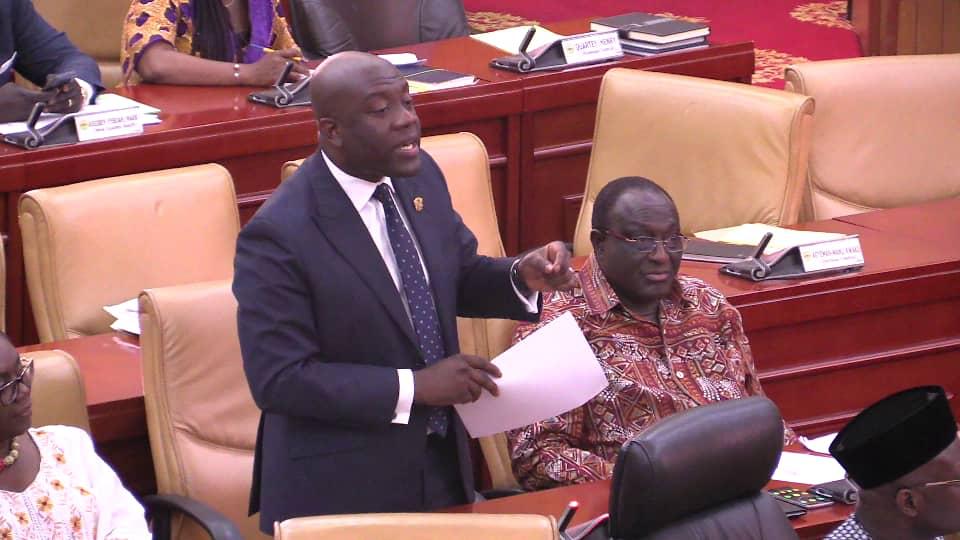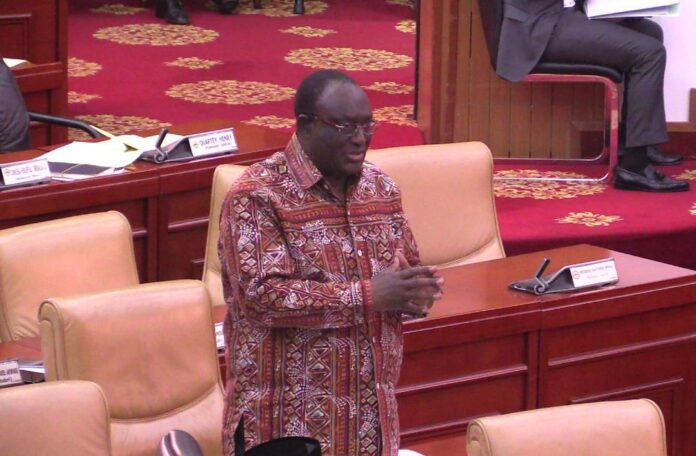Gov’t pushes for passage of Automotive Industry law
The government has pushed for the passing of a law to facilitate the birth of the Ghana Automotive Industry.
The law is an amendment to the Customs Act, 2015 (Act 891) and is expected to provide legal backing for the incentives that Ghanaian car manufacturers would enjoy under the Ghana Automotive Industry Policy.
Implementing the policy would make Ghana a fully integrated and competitive industrial hub for the Automotive Industry in the West Africa sub-region, the government said.
Information Minister, Kojo Oppong Nkrumah, and Trade and Industry Minister, Alan Kyeremanten, leading a debate on the subject in Parliament on Tuesday, both stressed on the importance of the new laws in supporting the Automotive Industry.

Mr Oppong Nkrumah said that the policy was critical because it spelt out the broad framework for promoting the automotive industry in Ghana.
“The law would become a clear blueprint for any potential investor while delivering the value to them and the Ghanaian people,” he explained.
To clear out some misinformation about the policy, Mr Oppong Nkrumah stressed, “it is incorrect to say the policy was going to effect a ban on the importation of second-hand vehicles and render dealers jobless.”
According to the Information Minister, “the policy was rather appropriate in checking salvage vehicles for roadworthy purposes.”

Rallying the legislators to buy into the idea, Mr Kyerematen announced that some local vehicle manufacturers in the automotive industry such as Kantanka Automobile had already been engaged on how to enjoy the said policy.
He said that Ghanaians would have the opportunity to acquire new vehicles under the policy as their choice of preference.
“There are many benefits from this policy. It would bring foreign direct investment and create diverse economic linkages.
“It will also improve the balance of payments through competitive import substitution and export market development, improve vehicle safety and environmental standards; and to transform the quality of the national road transport fleet and safeguard the natural environment,” he explained.
Background of the policy
The passage of the Customs Amendment Bill in Parliament on Tuesday means the government will prevent anyone from importing used vehicles that are older than 10 years.
The government will also place a total ban on the import of salvaged cars, also known as accident cars.
According to the joint report of the Joint Committee on Finance and Trade, Industry and Tourism, the government has predicted an estimated revenue loss of GHc 802 million over the next three years.
The loss will be from import revenue the GRA projects the state will lose from the ban on the importation of such vehicles.
The review of the policy is in line with the Ghana Automotive Manufacturing Development Programme.
The amendment is to provide incentives for automotive manufacturers and assemblers registered under the Ghana Manufacturing Development Programme.
A clause in the amendment empowers the Minister of Finance to specify the date on which the ban will come into place.
The objective of the policy
The strategic objectives of the policy to establish a fully integrated and competitive industrial hub for automotive manufacturing in collaboration with the private sector.
It is also expected to generate highly skilled jobs in automotive assembly and the manufacture of components and parts, with spillover effects into other sectors of the economy.
The policy will help establish an asset-based vehicle financing scheme for locally manufactured vehicles to ensure affordability for vehicle buyers.



